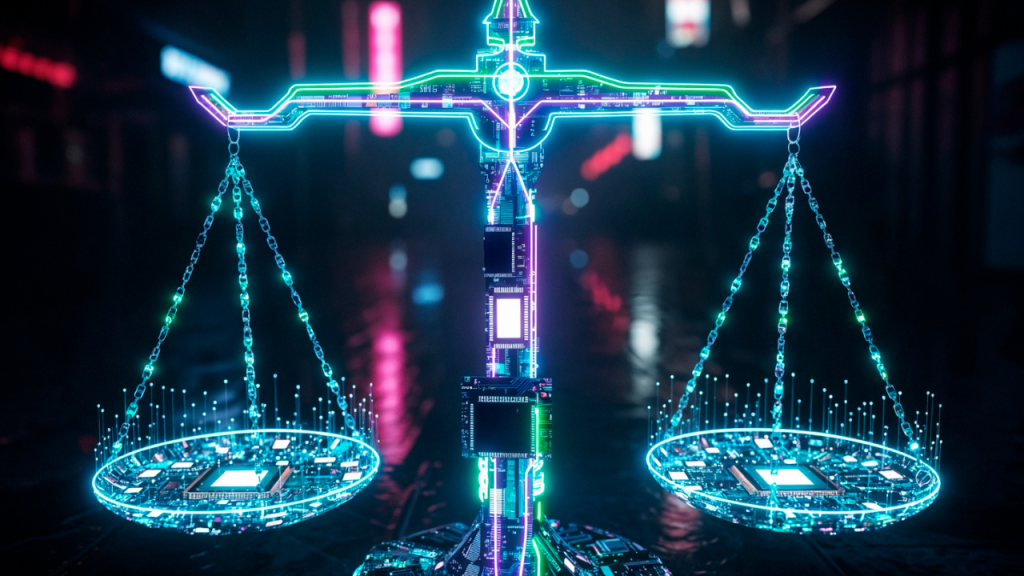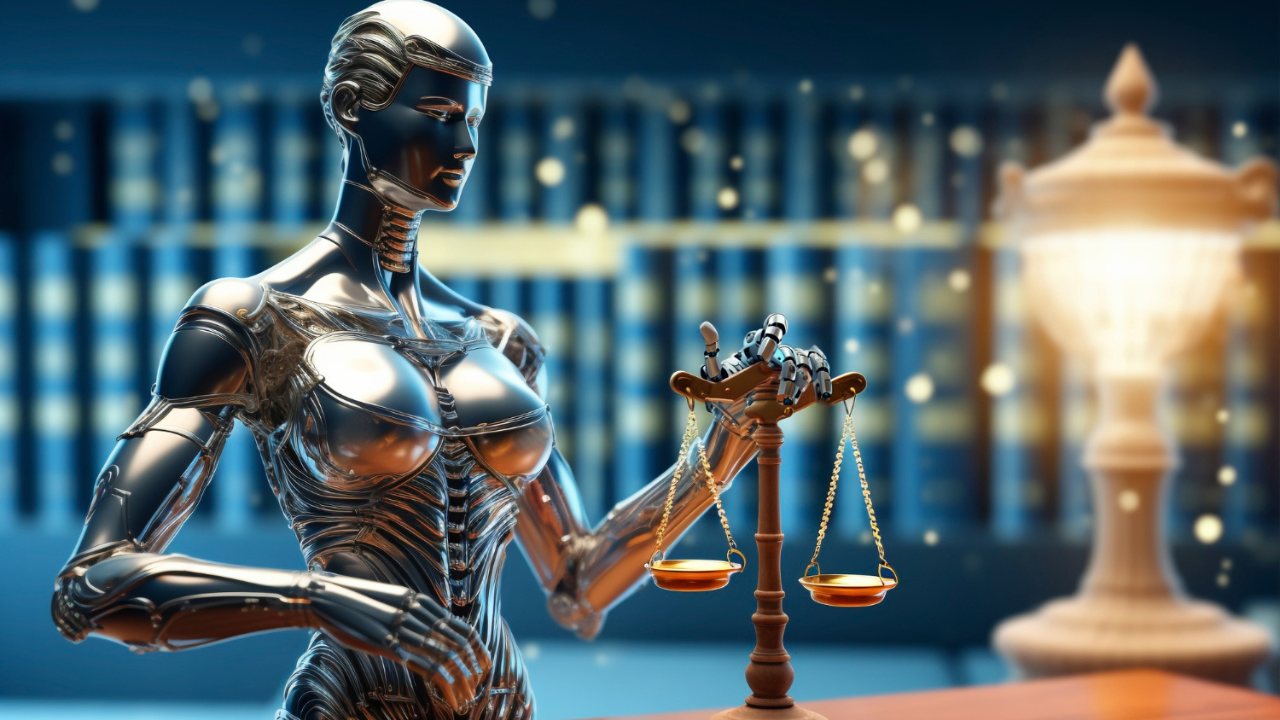Table Of Contents
- The Rise Of Generative AI In Legal Practice: Ethical Use Of AI In Law
- The Duty Of Competence In An AI Context
- Confidentiality And Data Security
- Accuracy, Bias, And Accountability
- Managing Ethical Risks: A Practical Framework
- How Can Legal Firms Use Generative AI For Their Growth?
- Efficiency Gains
- Improved Client Services And Acquisitions
- Strategic Advantage
- The Future Of Ethical Legal Practice
Upholding Ethical Duties In The Age Of Generative AI
The legal world’s going through a massive shift right now. One of them is the ethical use of AI in law.
Generative AI—these tools that can draft legal docs, sum up judgments, or even chat through legal questions—have changed how lawyers work almost overnight.
They save heaps of time, sure, but they’ve also opened a can of ethical worms that no one can ignore.
We’re talking things like keeping client info safe, checking accuracy, and making sure lawyers still meet their duty to know what they’re doing.
Technology’s racing ahead, and the rules just can’t stand still. The trick for lawyers is to learn how to ride the wave without losing grip on the professional standards that keep the system honest.
This piece digs into how lawyers can maintain their ethics intact in this AI-driven age! Especially for anyone doing legal CPD or taking structured CPD for lawyers to stay sharp and compliant.
The Rise Of Generative AI In Legal Practice: Ethical Use Of AI In Law
So, what’s generative AI? It’s basically software that spits out words—summaries, answers, even whole legal drafts, after you give it a prompt.
Think ChatGPT and its cousins that can crank out a contract draft or sum up a tricky case in seconds. It’s fast, it’s handy, and it’s already sneaking its way into every corner of legal work.
But let’s be clear! AI doesn’t “get” the law. It runs on patterns, probabilities, and huge piles of text, not judgment or reasoning. But how to perform the ethical use of AI in law?
And that’s where trouble starts. Sometimes it just makes things up! Citations, facts, whatever sounds right.
If a lawyer takes that output at face value and drops it into a client memo or court submission, that’s not just sloppy, it’s an ethical mess waiting to happen.
That’s why old-school legal values such as confidentiality, competence, and honesty are important! Which needs to guide every click and prompt.
The Duty Of Competence In An AI Context
Competence isn’t just about knowing the law anymore. These days, it also means understanding the tools you use.
Lawyers don’t need to know how to code, but they do need to understand what AI can and can’t do, and when to double-check.
Being competent with AI means using judgment. While conducting the ethical use of AI in law, a good lawyer should:
- Review everything before trusting AI output.
- Watch for bias or missing data baked into the system.
- Stick to platforms that meet data rules and professional standards.
Courts have already thrown warning flags. Remember that case in 2023 when a U.S. lawyer filed a brief full of fake case citations that AI invented?
That fiasco showed everyone that you can’t hand your duty of competence to a chatbot. Technology helps, but it doesn’t take the fall for your mistakes.
Confidentiality And Data Security
This one’s the big worry. Lawyers deal with private, sometimes life-changing information, and using AI without thinking twice can be risky.
Many AI platforms use user input to train their models, so what you type could appear elsewhere. Scary thought, honestly.
So before feeding any client data to an AI tool, lawyers should:
- Read the fine print—see how the system stores, shares, and reuses data.
- Never drop identifiable details unless it’s inside a secure, enterprise-level system.
- Set firm-wide ground rules about how AI can be used and who reviews what it produces.
At its core, confidentiality isn’t just another rule. It’s what keeps clients’ trust alive. Lose that, and you risk discipline, bad headlines, and worse.
Accuracy, Bias, And Accountability

Let’s talk about bias during the ethical use of AI in law. Every AI model learns from existing data, which means it absorbs the same biases that data already contains.
Not great when you’re using it for due diligence or risk checks where neutrality matters. The law needs precision and fairness, not shortcuts that skew the truth.
That’s where human judgment steps in. Ethical use of AI in law might find connections fast, but only a lawyer knows how to read between the lines and apply a legal filter. Machines can’t see nuance, context, or intent—but lawyers can.
And accountability? That always stays with the human. If AI helps prepare your work, fine—but if there’s an error, the responsibility’s still yours, not the tool’s.
Managing Ethical Risks: A Practical Framework
Law firms can handle this better by setting clear systems that balance efficiency with integrity. A few ideas worth considering:
- Draft internal policies that spell out when and how AI can be used, plus what kind of data is off-limits.
- Train everyone on AI basics so no one blindly relies on it.
- Treat every AI output as a rough starting point—it’s there to help, not finish the job for you.
- Keep learning. Sign up for CPD courses and ethics workshops focused on AI’s growing role in the law.
This kind of structure protects both clients and firms—and reassures the public that lawyers aren’t outsourcing judgment to machines.
How Can Legal Firms Use Generative AI For Their Growth?
Law firms can easily leverage AI to achieve significant business growth by enhancing efficiency, improving client services, and enabling data-driven decision-making.
The key applications and growth drivers:
Efficiency Gains
First of all, AI can easily automate various time-consuming tasks. You can use the tools to facilitate multiple document reviews and e-discovery. This can further drastically reduce the manual labour.
The AI-powered platforms, such as Lexis+ AI, can streamline complex legal research. On the other hand, generative AI can assist with drafting all initial documents and correspondence.
This can free the lawyers for more high-value work!
Improved Client Services And Acquisitions
AI enables 24/7 client engagement through various mediums such as chatbots and virtual assistants. This ensures immediate responses to all inquiries.
The technology further allows you to become more proactive through data-driven advice and boost client satisfaction.
Strategic Advantage
The predictive analytics are also powered by AI. The help firms analyse historical data to forecast potential case outcomes and litigation risks.
This can also give you a significant strategic edge in case planning and client counselling. The firms can also use AI in order to identify emerging market trends along with the new practice areas.
The Future Of Ethical Legal Practice
Generative AI isn’t another tech fad—it’s here to stay, already rewriting how the legal field runs.
But keeping ethics front and center is the only way to stop it from going off the rails. As tools get smarter, lawyers have to get wiser about how they’re used.
Those who grasp that balance—using AI smartly but responsibly—will thrive. They’ll move faster, stay compliant, and build deeper trust with clients. On the flip side, cutting corners could cost a career.
No matter how advanced technology gets, the backbone of this profession doesn’t change: competence, confidentiality, and integrity.
They’re what hold the legal system together. Upholding them in the AI era isn’t box-ticking—it’s the very thing that keeps the law credible, human, and grounded.
Read Also:















